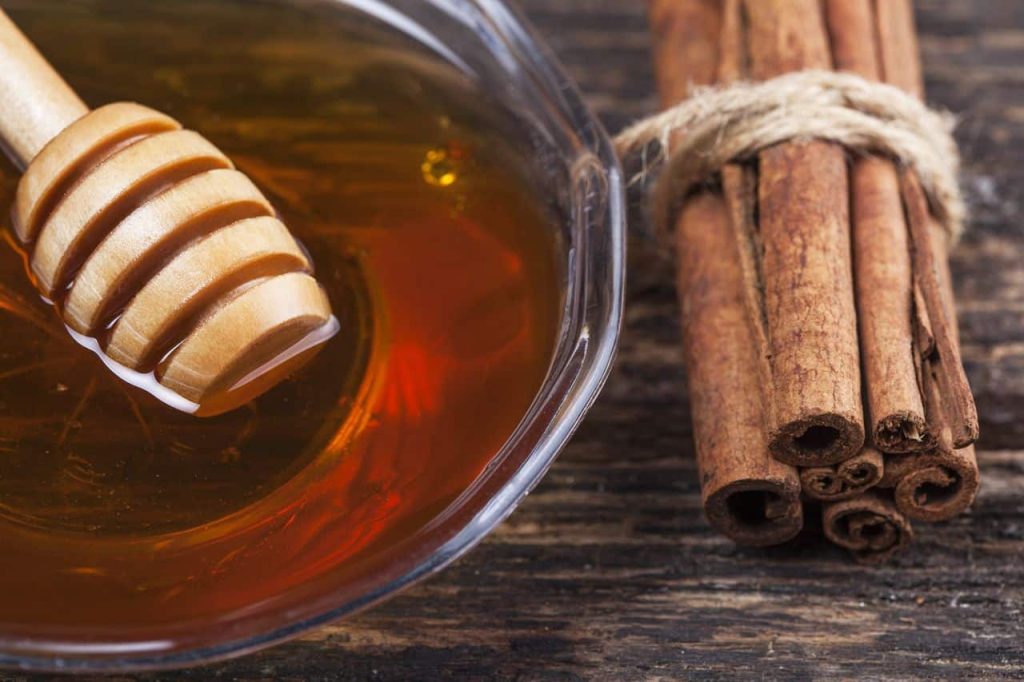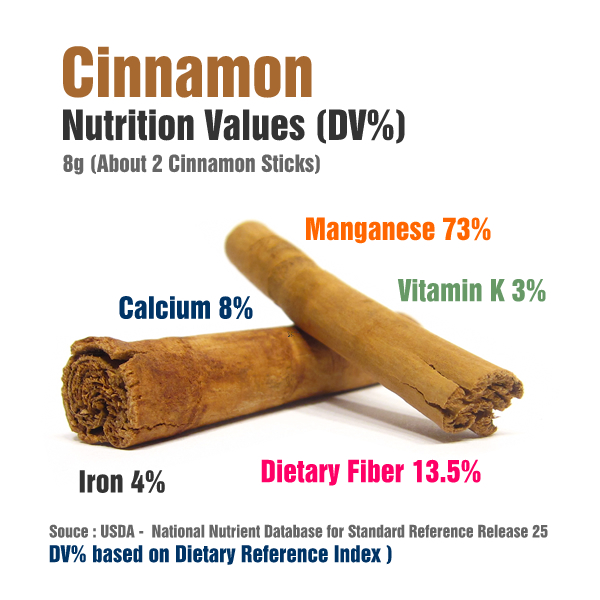Cinnamon and honey have been recognized for their potential health benefits, including their role in supporting weight loss. This article delves into the science behind these two ingredients and provides a detailed guide on preparing a weight-loss drink using cinnamon and honey.

Understanding the Health Benefits of Cinnamon
Cinnamon, a beloved spice derived from the bark of Cinnamomum trees, boasts numerous health benefits beyond its delightful flavor. Rich in antioxidants, cinnamon helps combat oxidative stress in the body, reducing inflammation and supporting overall well-being. Studies suggest that its anti-inflammatory properties may contribute to lower risks of chronic diseases, including heart disease.
Moreover, cinnamon has been linked to improved insulin sensitivity, aiding in the regulation of blood sugar levels. This is particularly beneficial for individuals with diabetes or those at risk of developing the condition. The spice contains compounds that mimic insulin, facilitating cell glucose uptake and enhancing metabolic function.
Cinnamon may also contribute to better cognitive function. Research indicates that certain components of cinnamon may protect brain cells, potentially reducing the risk of neurodegenerative diseases.
Additionally, cinnamon exhibits antimicrobial properties, combating bacteria and fungi. This can support oral health and may play a role in preventing infections.
While incorporating cinnamon into your diet, whether in teas, baked goods, or sprinkled on various dishes, can be a flavorful experience, it’s essential to maintain a balanced and varied diet for overall health.
Embracing the potential health benefits of cinnamon adds a tasty and aromatic dimension to a wellness-focused lifestyle.
The ancient roots of cinnamon and its use in traditional medicine
Cinnamon’s rich history stretches back to ancient times when it was highly prized for its medicinal properties in various cultures. Originating from the bark of Cinnamomum trees native to Sri Lanka, India, and other parts of Southeast Asia, cinnamon found its way into the traditional medicine practices of these regions.

In Ayurveda, the ancient Indian system of medicine, cinnamon was revered for its warming properties and was believed to balance the three doshas – Vata, Pitta, and Kapha. It was often used to address respiratory issues and digestive discomfort and as a general tonic for vitality.
In Chinese medicine, cinnamon, known as “gui zhi,” was considered a potent herb that could invigorate blood circulation and dispel cold. It was used to address conditions related to the kidneys, improve digestion, and alleviate pain.
Ancient Egyptians utilized cinnamon for embalming purposes and as a component of perfumes. Its rarity and exotic nature made it a prized trade commodity in the ancient world, connecting civilizations along the famed Silk Road.
These historical uses highlight the widespread recognition of cinnamon for its aromatic, culinary, and medicinal value. As we continue to uncover the properties of this spice, we appreciate its enduring significance in ancient and modern wellness practices.
Nutritional Composition
Cinnamon, though consumed in relatively small amounts, is a powerhouse of beneficial compounds that may contribute to weight loss and overall health. One key component is cinnamaldehyde, responsible for the spice’s distinct flavor and aroma. Cinnamaldehyde has been studied for its potential to boost metabolism and improve insulin sensitivity, crucial factors in weight management.

Another important compound is proanthocyanidin, an antioxidant that may aid in reducing inflammation and supporting cardiovascular health. Cinnamon is also rich in polyphenols, which have been associated with increased fat-burning and improved insulin function.
Furthermore, cinnamon is a good source of manganese, providing about 22% of the recommended daily intake in just one teaspoon. Manganese plays a role in metabolism and may contribute to energy production, potentially supporting weight loss efforts.
Moreover, the spice has been linked to appetite control. Some studies suggest that cinnamon may help regulate blood sugar levels, preventing rapid spikes and crashes that can lead to increased hunger and overeating.
While cinnamon alone is not a magical solution for weight loss, incorporating it into a balanced diet, coupled with regular exercise, may offer additional support in achieving and maintaining a healthy weight. As always, it’s essential to approach weight management holistically and consult with healthcare professionals for personalized advice.
How Cinnamon can Influence Metabolism and Promote Weight Loss
Cinnamon can influence metabolism and promote weight loss through several mechanisms. The key active compound, cinnamaldehyde, has been shown to enhance metabolic function by increasing the expression of genes related to thermogenesis. This process involves the burning of calories to generate heat, potentially contributing to weight loss by boosting the body’s energy expenditure.
Moreover, cinnamon has demonstrated the ability to improve insulin sensitivity. By enhancing insulin function, the spice helps regulate blood sugar levels, reducing the likelihood of insulin resistance. Stable blood sugar levels are crucial for preventing excessive insulin release, which can lead to increased fat storage.

Cinnamon’s impact on blood sugar also extends to managing cravings and controlling appetite. The spice may help modulate post-meal blood glucose levels, curbing the desire for sugary snacks and preventing overeating.
Additionally, cinnamon possesses anti-inflammatory properties, potentially reducing inflammation associated with obesity. Chronic inflammation is linked to metabolic dysfunction, and by mitigating this inflammatory response, cinnamon may support overall metabolic health.
Incorporating cinnamon into a well-balanced diet, whether through sprinkling it on foods, adding it to beverages, or taking it as a supplement, maybe a flavorful strategy to complement a holistic approach to weight management.
However, it’s essential to maintain a healthy lifestyle with proper nutrition and regular exercise for sustained and effective weight loss.
Medicinal Properties of Honey and its Historical Use as a Natural Remedy
Honey, a golden elixir produced by bees from flower nectar, has been cherished for its medicinal properties throughout history. Its antimicrobial qualities make it a natural remedy for wound healing and infection prevention. Ancient Egyptians used honey in embalming due to its preservation capabilities, showcasing its antibacterial properties. In traditional Ayurvedic medicine, honey has been employed for its soothing effects on the respiratory system, making it a popular choice for treating coughs and throat irritations.
Rich in antioxidants, honey combats oxidative stress, potentially reducing the risk of chronic diseases. It also contains phytochemicals that contribute to its anti-inflammatory effects, beneficial for conditions like arthritis and gastrointestinal discomfort.
Historically, honey has been employed to enhance digestion and alleviate gastrointestinal issues. Greek and Roman physicians recommended honey for various ailments, recognizing its therapeutic potential. In the Middle Ages, honey was a common ingredient in medicinal concoctions, believed to boost overall health.

Modern research continues to uncover honey’s diverse health benefits, including its potential role in wound care, its ability to soothe coughs, and its antioxidant properties. The historical and ongoing use of honey as a natural remedy underscores its enduring significance in promoting health and well-being.
Synergies Between Cinnamon and Honey in Supporting Weight Loss Goals
Cinnamon and honey, when combined, create a dynamic duo that may synergistically support weight loss goals through various mechanisms. Cinnamon’s active compound, cinnamaldehyde, can enhance metabolism by promoting thermogenesis, while also improving insulin sensitivity. This helps regulate blood sugar levels, reducing the likelihood of insulin resistance and subsequent fat storage. Honey, rich in antioxidants and phytochemicals, complements these effects by further aiding in the management of oxidative stress and inflammation.

The combination of cinnamon and honey may also contribute to appetite control. Cinnamon has been associated with stable blood sugar levels, preventing the spikes and crashes that can lead to cravings, while honey’s natural sweetness provides a satisfying alternative to processed sugars, potentially reducing the desire for sugary snacks.
Moreover, both cinnamon and honey possess antimicrobial properties, supporting overall gut health. A healthy gut is crucial for efficient digestion and nutrient absorption, which are integral aspects of weight management.
To harness the potential benefits of this dynamic duo, consider incorporating a mixture of cinnamon and honey into your diet, perhaps in teas, smoothies, or as a flavorful topping for healthy snacks. However, it’s essential to maintain a balanced diet, engage in regular physical activity, and consult with healthcare professionals for personalized advice on weight loss strategies.
Step-by-Step Guide on Preparing the Weight Loss Drink
To prepare a simple and potentially beneficial weight loss drink using cinnamon and honey, follow this step-by-step guide:
Ingredients:
- 1 cup of hot water
- 1 teaspoon of ground cinnamon
- 1 tablespoon of honey (preferably raw and organic)
Instructions:
- Boil one cup of water and let it cool for a couple of minutes to achieve the desired temperature.
- Add 1 teaspoon of ground cinnamon to the hot water. Ensure the cinnamon is of high quality for maximum benefits.
- Stir the mixture well to evenly distribute the cinnamon. Let it steep for a few minutes to allow the flavors to infuse.
- After steeping, add 1 tablespoon of honey to the cinnamon-infused water. Stir thoroughly to dissolve the honey.
- Taste the drink and adjust the honey to suit your preference. You can also add a squeeze of lemon for extra flavor and vitamin C, which may further support weight loss.
- Drink this mixture in the morning on an empty stomach for potential metabolism-boosting effects.

Note: While this drink may complement a healthy lifestyle, it’s crucial to maintain a balanced diet, exercise regularly, and consult with healthcare professionals for personalized weight loss advice. Adjust honey quantities based on taste preferences, and consider variations like using green tea as a base for added antioxidants.
Conclusion
- The article highlights the potential benefits of incorporating a cinnamon and honey weight-loss drink into one’s lifestyle.
- Cinnamon, with its active compound cinnamaldehyde, may boost metabolism, improve insulin sensitivity, and aid in appetite control.
- Honey, rich in antioxidants and phytochemicals, complements these effects, offering anti-inflammatory properties and supporting overall gut health.
The combination may contribute to stable blood sugar levels, potentially reducing cravings and supporting weight management. However, it’s crucial to maintain a balanced diet, engage in regular exercise, and consult with healthcare professionals before making significant changes to one’s diet.
While this drink may be a flavorful addition to a healthy lifestyle, individual responses vary, and personalized advice ensures a safe and effective approach to weight loss. Encouraging readers to seek professional guidance reinforces the importance of a holistic and informed approach to achieving their health and wellness goals.
